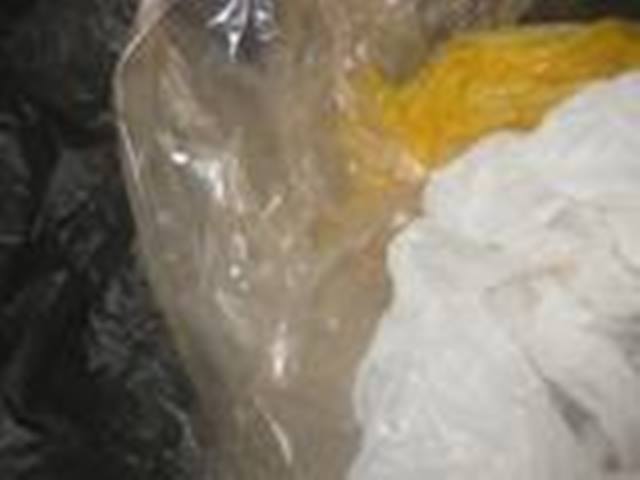"Cameroon bans non bio-degradable papers"
May 30 Cameroon’s ban on plastic bags echoes an environmental initiative others have imposed, writes Alphonse Akouyu, 19, a Commonwealth Correspondent from Bamenda, Cameroon, but the controversial move caught retailers and consumers unprepared.
Cameroon’s ban on plastic bags echoes an environmental initiative others have imposed, writes Alphonse Akouyu, 19, a Commonwealth Correspondent from Bamenda, Cameroon, but the controversial move caught retailers and consumers unprepared.
Midnight April 24th was the dead line given by the Cameroon government as the day the country’s last stock of non bio-degradable papers, especially plastic bags which constitute a very high percentage of this group, was supposed to be in circulation.
This date was set officially by the government 18 months ago for the simple reason that these non bio-degradable papers are harmful to the environment and to the health of both humans and animals. The ministry of Environment and Nature Protection, which was charged with ensuring that the ban goes in to effect, did carry out some sensitization before the ban. This was mostly centered on education on the harmful effects of non bio-degradable papers. The minister’s journey therefore took him to all the ten regions of the country with the main motive of talking to sellers, producers and consumers alike about the issue which for a while now has been the subject of discussion of debate centers nationwide.
The non bio-degradable paper industry, especially that for plastics, employs thousands of people and it is really a lucrative business in this part of the world. Also as important is its use, in fact close to 95 per cent of packaging here is done using these papers. There also exist locally made food stuffs such as fufu-corn (grinned corn) and cooked garri (fermented fried cassava) which are usually preserved using these plastics papers, and these two are highly consumed by a good portion of the population. This reporter found himself having to carry 20 puff balls in his hands which he bought on the 14th of May. When he angrily shouted at the innocent seller for not providing him with a plastic bag to put them inside, he was told there is no plastic bag. Only then did he realize that the 24th of April had passed and the government meant business.
Cameroonians have diverse opinions on the topic with some insisting the government was right and others saying it was not. The government has quoted the examples of other countries where the same ban was implemented with huge success. In this country everybody is an analyst in any area no matter the specialty of the issue at stake, and one very common consensus amongst various analysts both experienced and inexperienced is that these papers have a negative effect on the aforementioned groups.
However where these analysts disagree with the government is in the process with which the ‘Paper Affair’, as some called it, has been treated. To them, it could have been a gradual process of instituting the new substitute and trying to get rid of the banned papers. Business experts further argue that it could have been a case where the government uses stiff economic measures to remove the banned papers from the market while using these same policies to encourage the recommended substitute – this to them could have at least a year.
In fact where the decision has raised so many eyebrows is in the domain of introducing a substitute for the banned papers. In reality, based on eye witness reports in Buea, Bamenda, Limbe, Yaounde and Douala, the substitute is hard to come by and small scale sellers have complained about its unavailability. One small scale retailer told this reporter that ’these plastic bags used to be sold to us by hawkers who sold them to us at anytime and anywhere, it was widely available, now we they want us to stop using these plastic bags without making the replacement available, we are confused and we would just keep on waiting for what happens while using whatever means of packaging we have at our disposal’.
As at now, the government does not look like going back on its word any time soon despite various appeals and criticism from stakeholders in the plastic paper industry. The ban has gone in to effect and this explains why officials of the Ministries of Trade and Commerce and those of Environment and Nature Protection have begun the process of seizing the banned product. It won’t be day’s job to completely remove plastic papers from the market as eye witness reports still indicate that plastic packaging is done clandestinely. As Cameroonians anxiously wait for what would become of their packaging process in the next few months, some have already yielded to the demands of the government by deriving their own bio-degradable substitute.
Photo credit: Alphonse Akouyu
…………………………………………………………………………………………………
About me:
Hello everyone this is your friend Akouyu Alphonse from Bamenda located in the North West Region of Cameroon. I’m currently in my last year in the Catholic University of Cameroon Bamenda studying Banking and Finance. I will be completing my studies in June of 2014 with the hope of becoming a Business/International Relations expert.
My areas of interest are serving as Journalist especially on Sports (football) and societal issues aimed at inspiring people to believe in themselves and volunteerism.
…………………………………………………………………………………………………
Opinions expressed in this article are those of the author and do not necessarily represent the views of the Commonwealth Youth Programme. Articles are published in a spirit of dialogue, respect and understanding. If you disagree, why not submit a response?
To learn more about becoming a Commonwealth Correspondent please visit:
http://www.yourcommonwealth.org/submit-articles/commonwealthcorrespondents/
…………………………………………………………………………………………………






